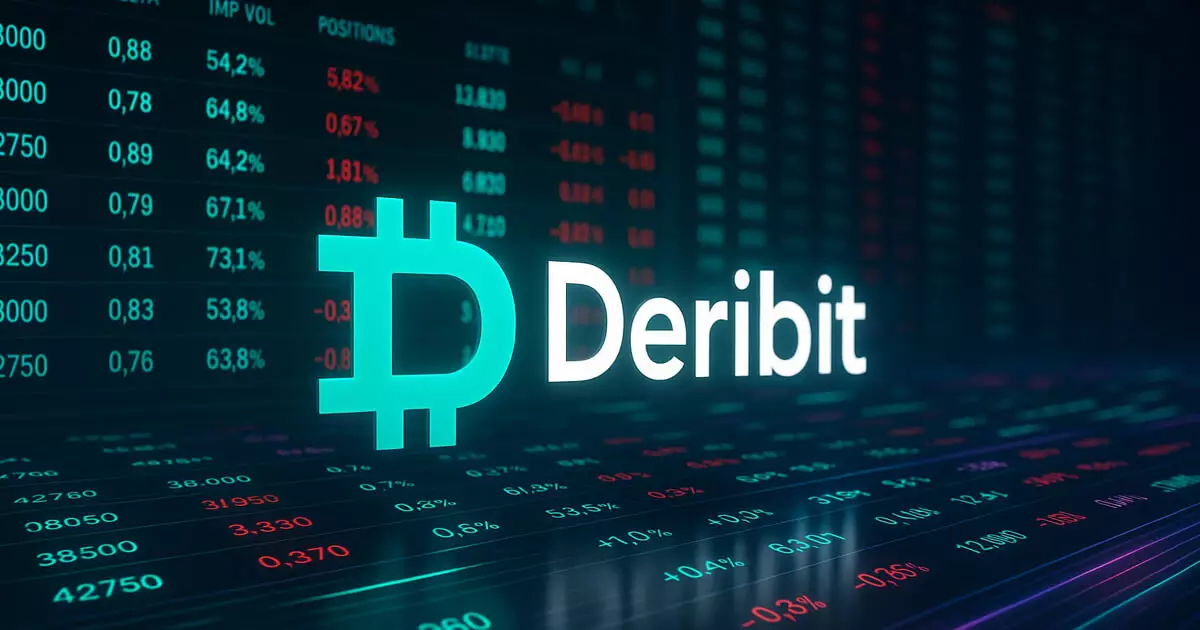In a move that has the crypto world abuzz, Coinbase has announced its acquisition of Deribit, a leading crypto derivatives platform, for an astonishing $2.9 billion. This marks Coinbase’s largest acquisition to date, showcasing its intent to dominate an increasingly competitive landscape. While the decision to pursue such an aggressive strategy may appear savvy from one perspective, it raises critical questions about the sustainability and long-term vision of the company itself.
The Promise of Derivatives
In the last few years, the crypto derivatives market has surged in importance, contributing significantly to daily trading volumes. Coinbase’s acquisition of Deribit, which reported a staggering $1.2 trillion in transaction volume just last year, gives it access to new revenue streams in a market that continues to expand rapidly. However, one can’t help but wonder whether Coinbase is merely playing catch-up. While it’s commendable that the company aims to cement its position in this lucrative segment, the fear remains that it lacks a proactive blueprint for maintaining relevance amidst fierce competition—not just from within the crypto space, but also from traditional financial institutions adapting to digital assets.
The Regulatory Labyrinth
The complexities around regulatory approval are another critical aspect to consider. Deribit’s Dubai-based license is paramount for its operations, and this move will require careful navigation through multiple regulatory channels. In a market fraught with uncertainty, the onus is on Coinbase to innovate while complying with evolving guidelines. Although recent developments in U.S. regulations have fostered a more optimistic environment, the need for a resilient risk management strategy when entering international markets cannot be overstated. Coinbase’s ability to mitigate regulatory risks will be pivotal in determining the success of this acquisition.
A Shift in Public Sentiment
Interestingly, this acquisition comes at a time when political winds are shifting towards a more welcoming stance on crypto regulation in the U.S. This newfound optimism has encouraged not just Coinbase but also its competitors, like Kraken, to pursue similar ambitious acquisitions. The potential for clear regulatory frameworks poses an exciting opportunity but also carries a potential pitfall: a market crowded with newly empowered players eager to exploit these changes. The challenge will be to keep a lid on market speculation while maintaining ethical business conduct. The crypto space, bursting with potential fraud and volatility, demands more than just a sound acquisition; it requires an unwavering commitment to integrity.
Challenges Ahead
Even as Coinbase moves to acquire an established player in Deribit, it faces daunting challenges. Building a coherent operational framework that integrates both organizations will require adept leadership and a clear focus on long-term strategy. The fear of diluting Deribit’s brand amidst this integration process is a legitimate concern; after all, Deribit’s client base appreciates transparency and efficiency, and any missteps could lead to an erosion of trust.
Coinbase’s opportunity to innovate the crypto derivatives market is shining bright, but alongside this opportunity lies the undeniable responsibility of delivering on promises made to stakeholders. Their aggressive tactics might just pay off—if they can navigate the complexities of integration and regulation adeptly. The stakes are high; only time will tell if Coinbase’s bold step turns into a paradigm shift or a cautionary tale.
















Leave a Reply